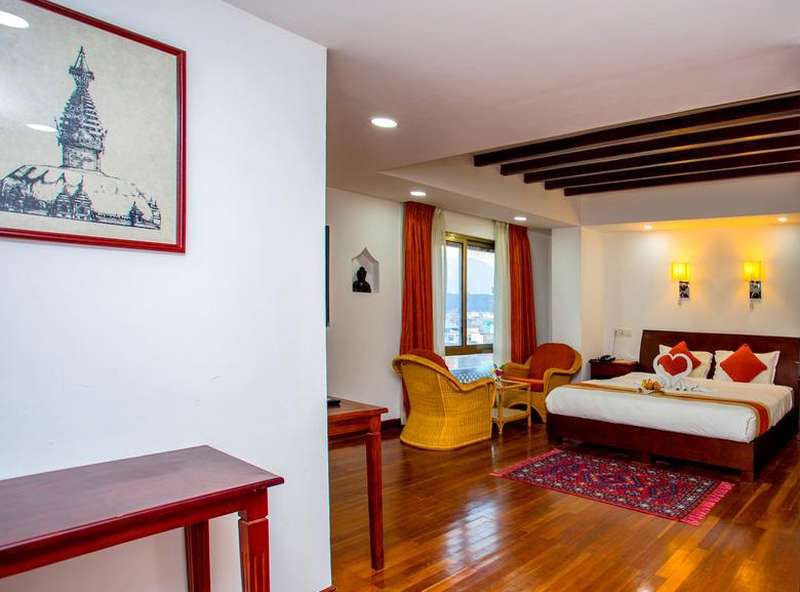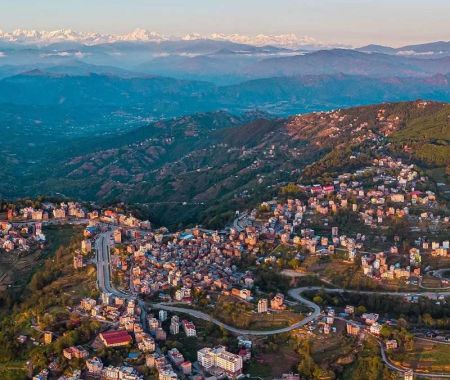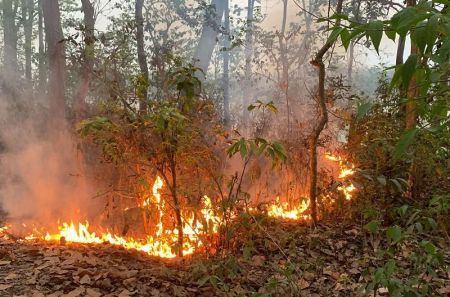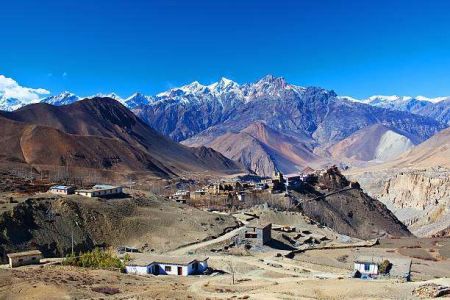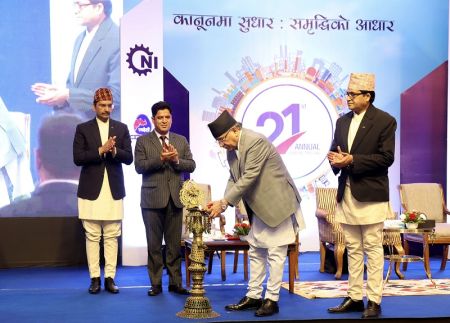As Nepalis stranded abroad are getting evacuated, hoteliers have agreed to help the government to quarantine the evacuees. But questions have been raised on the idea of using hotel rooms as isolation facilities have been raised.
On June 4, District Administration Office Kathmandu, supported by the Hotel Association of Nepal (HAN), issued a list of 47 hotels willing to quarantine foreign evacuees. The agreement came three months after the government first urged HAN for quarantine. The association initially declined the request, fearing the surge of the virus. However, the government kept on lobbying with HAN and tourism entrepreneurs following the Supreme Court’s order to evacuate Nepalis from abroad.
Meanwhile, a team led by Tourism Minister Yogesh Bhattarai visited Nagarkot for a feasibility study of setting up quarantine centres. The team, during that time, had identified some hotels and resorts in the Kharipati-Nagarkot area to be established into a quarantine centre. Finally, after months of struggle, a list of 47 hotels was finalised by the ministry under the coordination of Kathmandu DAO and HAN on June 4.
Shreejana Rana, president of HAN informs that over 3,500 beds compromising of various star and tourist standard hotels are allocated in the initial phase to quarantine foreign returnees.
The issued list consists of three four-star hotels, nine three-star, two two-star, five one-star, and 27 tourist standard hotels located in Kathmandu, Pokhara, Lumbini, and Chitwan.
“HAN in coordination with the Ministry of Tourism finalised the list of the hotels based on the standard of the procedure (SOP) made by the Tourism Ministry. However, allocating the hotels was a bit of a hassle because we didn’t receive a Statement of Purpose (SOP) in written form and were lacking transparency at first. The majority of the hotels in such an aspect were reluctant to the idea, as their staff and locals were against it, fearing the spread of the pathogen,” Rana informs.
She suggests such a decision from the government came haphazardly while the hoteliers were not prepared properly. “There is a lot to do, we have not done our homework sufficiently,” she opines.
Currently, Nepal is observing an unprecedented growth of corona infection, the number of health workers infected by the virus is also growing; locals, as well as some tourism entrepreneurs in such instances, suggest that hotel quarantine is not ideal in a country like Nepal where health protocols are vulnerable due to the lack of medical equipment and kits.
Sajan Shakya, general secretary of HAN informs that they have yet to receive the SOPs in written form from the government and the hotels are currently preparing the general protocols - use of masks, hand sanitizers, social distancing.
“The government had approached us with the idea of hotel quarantine three months ago but we declined such urges as we were reluctant to it, back then we had no idea about the nature of the virus. But now that we are aware of the contingencies which can be avoided with general practice, our member hotels are open to supporting the government,” Shakya adds.
Currently, hotels from various parts of the nation are ready to cooperate with the government. HAN member hoteliers in Pokhara, Chitwan and Bhairahawa are ready to allocate 2000, 5000 and 4,000 hotel rooms respectively for quarantine if required.
The hoteliers may be ready to cooperate but they are receiving pressure from the locals, who fear that the returnees staying in the hotels close to them will spread the pathogen to them and the urban population.
Witnessing such backlash from the public, Shakya requests the government -DAO and the concerned ministry - to take the initiative to build public awareness and to stop the growing stigma towards the hoteliers.
“I don’t see any risk; people are panicking recklessly without understanding the procedure. We will follow the international procedure marked by WHO. Returnees will go through PCR test upon arriving in TIA and then infected individuals will be separated and kept in an isolation facility while others testing negative will be shifted to the government quarantine facility. There they will receive their health certificate, the evacuees will be provided with the list of the hotels for quarantine, and an army vehicle will be mobilized to transport them to the hotel of their choice,” he adds.
Besides, he informs the individual opting for hotel quarantine will be kept in a room for 14 days and won’t be allowed to come out and a medical team will test them rigorously while the hotels will be guarded by armed forces.
Likewise, as per the operational guidelines, hotel workers will work for at least seven days and they would be required to remain in quarantine for the next seven days.
“We will disinfect the room in case any of the evacuees accommodating in the hotel test positive during the incubation period. The government has to bring awareness to the public about this,” he informs.
Hotel rooms for quarantine are available in two options - solo and sharing basis for as low as Rs 2,000 in a tourist standard hotel to Rs 8,000 per day at a four-star hotel. The cost is inclusive of all taxes and four meals a day and accommodation.
The evacuees have to pay the hotel expenses on their own. The Ministry of Tourism was in a competitive negotiation with HAN for finalising the charges to help accommodate foreign returnees at nominal charges.
Meanwhile, upon answering whether the initiative of hotel quarantine will aid the finance of the hotel business, Rana, Shah, and Shakya of HAN reluctantly informed that the hotels are providing their service to support the government initiative at a very nominal charge.
Shah, who has allocated his hotel, The Airport Roof Top for quarantine, urges that the hoteliers are providing the rooms to the government for emergency usage without any incentives. “The charges are marginal compared to our original fare and we are also providing four meals, package water, coffee, and internet without any additional charges,” he opines.
The first batch of migrant workers landed in Kathmandu on 5 June and was dispatched for self-isolation after none were tested positive. Analysing such a scenario, hoteliers are sceptical whether the foreign returnees will opt to be quarantined in hotels.
Government data estimates that around 2.6 million Nepali migrants are working abroad in the Middle East, Malaysia, and Korea and many have already lost their jobs due to the virus, while a million are estimated to fly back to Nepal.
Meanwhile, Shah urges the move of hotel quarantine is expected to bring around 20,000 workers back into jobs, estimating that 10,000 hotel rooms would be active for quarantine purposes.
“We don’t expect any financial benefits but the initiation will be of relief for the hoteliers. It will keep our staff engaged and most importantly, our equipment will be activated again,” Shah opines, adding the demand for food, vegetables, and dairy will increase and will support farmers and vendors.
However, Rana expressed disappointment at the government's decision to negotiate for cheaper charges. Earlier, the government had urged five-star hotels to provide their service to support the medical workers for as low as Rs 2,000 per night.
“We don’t understand what the government is trying to do, we have our investments and expenses to cover. How can they expect us to serve in such cheaper rates while we are crippling to sustain, we will collapse,” she urges.
No five-star hotels are on the list to quarantine foreign returnees. However, things can vary based on demand and request from the government. Even though hoteliers don’t have large financial expectations from the quarantine initiation, almost 60 hotels inside Kathmandu valley have expressed their agreement to HAN to cooperate for quarantining the foreign returnees, Shakya adds.


